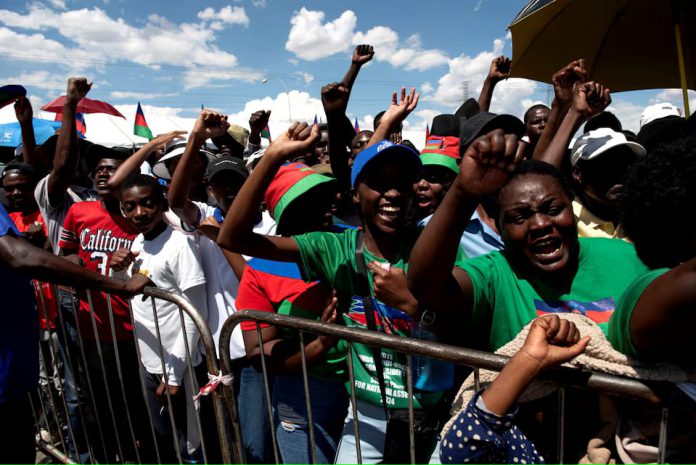Namibia’s main opposition party, Independent Patriots for Change (IPC), has said it will not accept the results from last week’s general election.
The opposition party added that there have been logistical problems and voting was extended in several places.
In a statement over the weekend, Panduleni Itula, the presidential candidate for the opposition Independent Patriots for Change (IPC) alleged there had been “glaring and undeniable” electoral malpractices.
Itula had been aiming to defeat the candidate for the South West Africa People’s Organisation (Swapo), which has been in power since independence in 1990.
Swapo’s flagbearer, Netumbo Nandi-Ndaitwah, is seeking to become the country’s first female president.
Voting began on Wednesday but, in parts of the country, continued up until Saturday, following a lack of ballot papers in some places as well as malfunctioning technical equipment.
Namibia is a geographically vast nation with about three million people, around half of whom are registered to vote.
“We shall not, under any circumstances, recognise the outcome of the 2024 election… that is still, in our opinion, illegitimately continuing,” Itula told a press conference on Saturday while calling for calm.
The IPC has said it will “pursue justice through the courts” and has encouraged people who felt that they had been unable to vote because of mismanagement by the electoral commission to go to the police to make a statement.
Meanwhile, votes are being counted and results in the presidential election from 10 of the 121 constituencies have been announced.
So far, Nandi-Ndaitwah has 48% of the vote to Itula’s 30%. A candidate needs more than half the ballots cast to win in the first round, otherwise there will be a second-round run-off.
Swapo, which led the liberation struggle against apartheid South Africa, has dominated politics in the country for 34 years.
But its popularity has been on the wane, and in the last election in 2019, its vote share in the presidential poll fell below 60% for the first time.
It is facing challenges similar to other liberation movements in the region, which saw South Africa’s African National Congress lose its outright parliamentary majority in May and the Botswana Democratic Party kicked out of power after nearly six decades following last month’s election.











